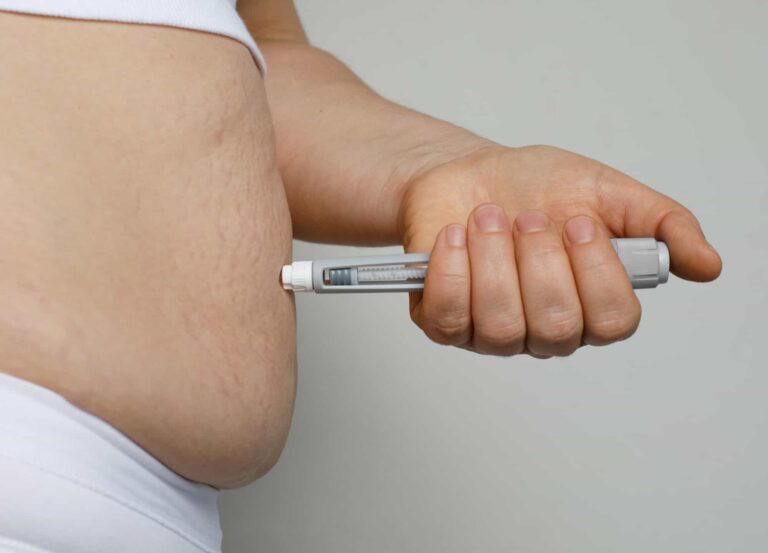This article has been medically reviewed for accuracy by Toronto, Canada certified plastic surgeon Dr. Mathew A. Plant on September 16, 2020.
Getting the butt of your dreams is, seemingly, easier than ever. With the proliferation of providers offering a variety of augmentation procedures, you no longer have to be genetically blessed with curves or spend hours perfecting a squat regimen. But there’s a dark side to the popularity of butt augmentation—illegal substances, unregulated facilities, and unqualified injectors are all too common and can have disastrous results.
If you’re considering butt augmentation, it’s important to do plenty of research and make sure you’re avoiding these major red flags.
The provider doesn’t have the proper training and accreditation
According to the American Society of Plastic Surgeons (ABPS), 21,823 buttock augmentation with fat grafting procedures (BBL) were performed in the United States in 2020 alone—a 22% decrease from 2019. The popularity of butt augmentation has given rise to noncredentialed operators, promising patients an enhanced backside at an affordable cost. When it comes to any kind of surgery, one of the biggest red flags to watch out for is a provider who is not certified by the American Board of Plastic Surgery (ABPS) or the Royal College of Physicians and Surgeons of Canada. “You want to make sure that the doctor is board-certified, has hospital privileges, has a well-thought-out plan of how they’re going to do the procedure, and has done a bunch of them,” says Dr. Jaime S. Schwartz, a board-certified plastic surgeon in Beverly Hills, California, who performs a significant number of revision gluteal augmentations.
Some patients may also be tempted by cosmetic surgery tourism, choosing to travel outside of the country for a butt augmentation procedure. Companies offer all-inclusive packages that provide recovery houses along with cosmetic surgery—all at a lower cost than if it were done in the States. According to the Guardian, upwards of 23,000 plastic surgeries were performed in the Dominican Republic in 2018, with more than 18,000 done on foreigners.
But is it worth the risk? It’s often hard to confirm whether the doctor has the proper training and accreditation or if the tools and products they use are safe and FDA-approved. The ABPS reports: “There are no U.S. laws that protect patients or mandate the training and qualifications of physicians who perform plastic surgery outside of the United States.” Certain surgery stipulations may also differ, such as liposuction limits. If something does go wrong, it can be costly at best, fatal at worst. In July 2019, three American patients who went to the DR for plastic surgery all died that same month, from complications.
The provider uses illegal substances for butt injections
Google butt shots, and you’ll turn up plenty of horror stories about black-market butt injections that have caused infections, disfigurement, and even death. Perhaps the most notable story was when rapper Cardi B openly admitted in a 2018 GQ interview to getting butt fillers in a woman’s basement, for $800. “It was the craziest pain ever. I felt like I was gonna pass out. I felt a little dizzy. And it leaks for, like, five days,” she said.
Dr. Charles Galanis, a board-certified plastic surgeon in Beverly Hills, California, says that a safe first step when researching butt injection options is to make sure that whatever you’re considering is FDA-approved. If it isn’t obvious, substances like cement, mineral oil, caulking, or tire sealant—all of which were allegedly used to fatally inject a woman in 2011—should be left at the hardware store. But it’s important to know that more legitimate-sounding substances for butt shots, like silicone and hydrogel, are also not approved by the FDA and are extremely risky. “It’s illegal, and it’s potentially dangerous,” Dr. Galanis says, adding that, typically, the people administering these types of treatments are not plastic surgeons. “Right there, you have an issue before we even get to the product, where you’re putting yourself at risk.”
Dr. Galanis points out that these types of butt shots are not sterile, which opens patients up to extremely serious, potentially life-threatening infections. “These materials are generally soft—they don’t necessarily stay in a single location,” Dr. Galanis explains. “They have a high incidence of granulomas, which end up being these hard lumps, and in conjunction with things like infection, people can be left with horribly disfiguring situations.” That, and if they’re injected improperly and it gets into a blood vessel, the substance can travel through the bloodstream to the heart and lungs and cause death, he says. It’s too easy an accident, even among qualified doctors.
Another issue with silicone, Dr. Schwartz adds, is that you don’t know what type of silicone you’re getting. There’s medical-grade silicone, but there’s also the sealant kind that you can buy anywhere. “Once you inject it into an area, it doesn’t come out—it always stays there,” he says.
Keep in mind also that silicone injections and silicone implants are two different things. With an implant, a solid silicone block is inserted into the buttock via an incision. “When implants work, they look amazing,” says Dr. Schwartz, but he adds that the surgery has one of the higher complication rates and the most painful recovery. “Outside of that, for people who are extremely thin and looking to give themselves curves and add some proportion, it’s really one of most powerful things you can do,” he says.
Sculptra, a dermal filler that has become popular for off-label uses (including butt enhancement), is your safest option, if you’re going to get injected with anything other than your own fat. Dr. Galanis says that patients who are looking to fill out the contour of the buttocks or get some volume tend to go for Sculptra. “The way that Sculptra works is, it sort of stimulates the body’s own collagen synthesis—so in theory, it’s ultimately a natural result,” he says. “The disadvantages are that it’s hard to get the truly sizable augmentation that you can with an implant or fat transfer, and it’s not permanent. Generally, you should expect results to last, maybe, a couple of years, but beyond that, a lot of the benefits you may get from it may be gone.” Dr. Galanis also says that it can be expensive because you need to use a lot of vials. (Sculptra averages about $923 per vial.)
Dr. Schwartz adds that Sculptra “can form scars, cause granulomas, and get hard and distorted. I’ll use it in conjunction with other things—you don’t know what the long-term effects could be if you use a lot of it alone.”
The provider mentions injecting into the muscle
Gluteal fat grafting, aka the Brazilian butt lift (BBL) had the highest death rate in all of plastic surgery until recently. This was due to fat being injected into the muscle of the buttock instead of into the subcutaneous tissue layer, resulting in a fatal pulmonary embolism (which is when fat enters the bloodstream). The good news is, the mortality rate has dropped since it has become the industry standard not to inject into muscle. (In Florida, doing so can cause a surgeon to lose their license entirely).
“[Fat] needs to be injected subcutaneously and cannot be injected intramuscularly, so certainly, if you’re talking to a provider and they’re not aware of that or they talk about placing fat into the muscle of the buttock, that would absolutely be a red flag. That would go against the safety and standard of care that we have today,” says Dr. Galanis.
In the right hands, BBLs “can be performed safely and effectively, with a predictable result,” Dr. Galanis explains. “The allure is that you’re using your own tissue and not putting in a foreign body, so in theory, it yields a more natural result [than] one might have with an implant.”
The operating facility isn’t regulated
A too-good-to-be-true deal is often just that, so always avoid going to unlicensed treatment centers promising low-cost butt augmentations. Even if it’s not in someone’s basement and looks like a sterile doctor’s office, make sure the facility is licensed. “I generally am wary of practices which are sort of, if you will, ‘chop shop’ places, where the cost is probably lower,” Dr. Galanis says. “They’re more set up to be high-volume centers—you may not even know who your surgeon is, until the day before. I think that’s a particularly dangerous thing to do for surgery that if not done right, could lead to death.”
Ask your provider which association the facility is accredited by—whether it’s the American Association for Accreditation of Ambulatory Surgery Facilities (AAAASF), the Accreditation Association for Ambulatory Health Care (AAAHC), or the Joint Commission on Accreditation of Health Care Organizations (JCAHO)—then contact the association to verify it.
The provider isn’t explaining your butt augmentation options or answering all your questions
The doctor should never seem annoyed or rushed if you’re asking a lot of questions about butt augmentation. “They should be giving you the risks, benefits, and alternatives and explaining to you exactly what can happen,” says Dr. Schwartz. Aside from asking the provider how experienced they are with the procedure, always ask them to explain how they actually do it. “Ask how they harvest the fat, what they do with the fat, where they inject it,” he says. “I have an open practice, so I always allow my patients to speak to other patients who have had the procedure.” If you feel pressured to book a date or put down a credit card, head for the door. “Your provider should be making sure that it’s the right procedure for you, not selling you [on it],” says Dr. Schwartz.











